North Darfur supply blockade stalls treatment for 5,000 malnourished children
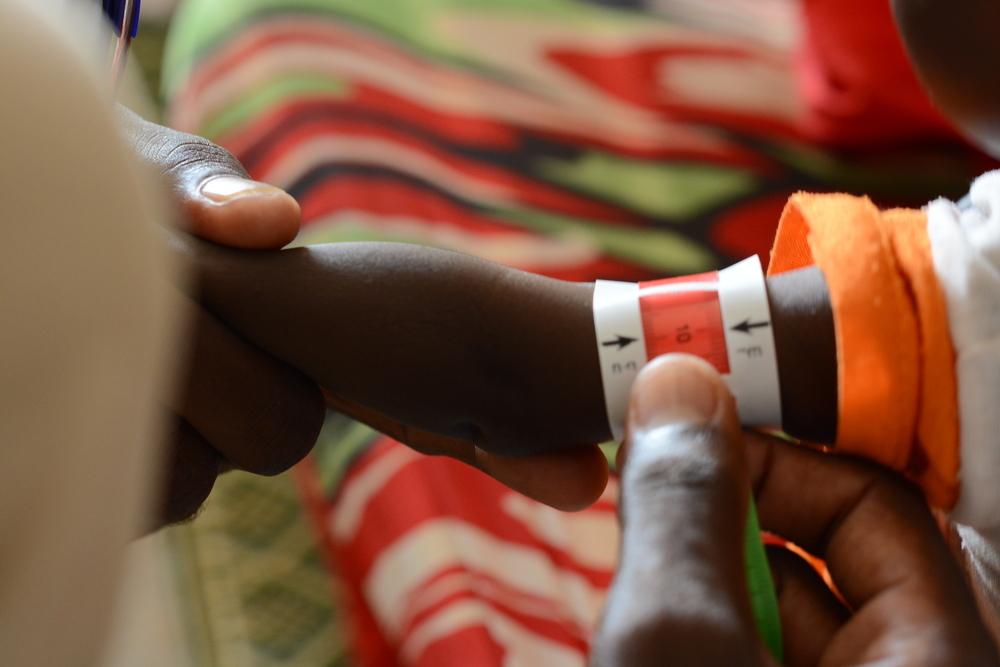
A child undergoes screening for malnutrition at the Doctors Without Borders clinic in Zamzam Camp, North Darfur, in August (Photo: MSF / Mohammed Jamal)
Humanitarian and relief NGOs operating in North Darfur lament that security issues and an ongoing supply blockade by the Rapid Support Forces (RSF) has caused relief food supplies to run dry, forcing the suspension of some live-saving service to thousands of malnourished children.
Médecins Sans Frontières (MSF) says that it has been forced to stop outpatient treatment for 5,000 children with acute malnutrition in Zamzam camp for displaced people near the North Darfur capital El Fasher, “because the warring parties have blocked deliveries of food, medicines, and other essential supplies for months”.
As supplies ran low at the end of September, MSF was forced to stop care for 5,000 children on an outpatient basis, including 2,900 children with severe acute malnutrition. Only MSF’s 80-bed hospital remains functioning in the camp to treat children at the greatest risk of dying, the organisation said in a press statement on Thursday.
MSF is calling on the various stakeholders to facilitate humanitarian aid delivery to Zamzam camp…’ – Michel-Olivier Lacharité, MSF’s head of emergency operations
“There is an urgent need for a massive supply of nutritional products and food to help people, it is currently a catastrophic situation,” says Michel-Olivier Lacharité, MSF’s head of emergency operations. “MSF is calling on the various stakeholders, the governments, the allies of the parties to the conflict, the RSF, the SAF, and the Joint Forces, to facilitate humanitarian aid delivery to the camp.”
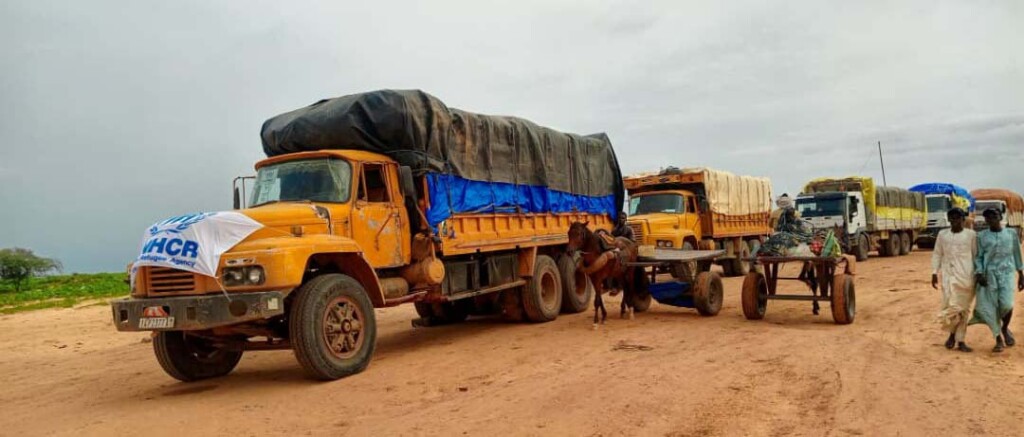
Some limited supplies have arrived in recent weeks, including medical supplies that MSF was able to transport, but the quantities remain far too low to meet the needs of people suffering from malnutrition in Zamzam camp, which has a population of approximately 450,000, MSF says.
The crisis has attracted broader international attention as the IPC Famine Review Committee concluded in August that a famine was underway in Zamzam camp. MSF’s own malnutrition assessments found that 30 percent of children were malnourished in multiple surveys earlier this year, estimating that a child was dying of causes linked to malnutrition every two hours on average. As the current crisis also limits MSF’s ability to collect new data, the current rate of death among children is not known.
“In the last few days, we’ve seen some positive signs, with trucks arriving after months of almost complete blockade around the camp. However, these quantities are insufficient,” says Lacharité. “These are positive signs, and we can see that the parties to the conflict recognise the seriousness of the situation and are starting to let trucks arrive.
“If we are to have a massive response, the aid agencies will also have to significantly step up their efforts and all diplomatic stakeholders negotiating with the parties to the conflict will have to convince them to ensure that this delivery continues over the coming months,” he says.
For example, providing a month’s worth of emergency food rations (around 500 calories a day per person) to the 450,000 people in Zamzam represents around 2,000 tonnes of rations. It would take 100 trucks a month to deliver them, the MSF statement concludes.
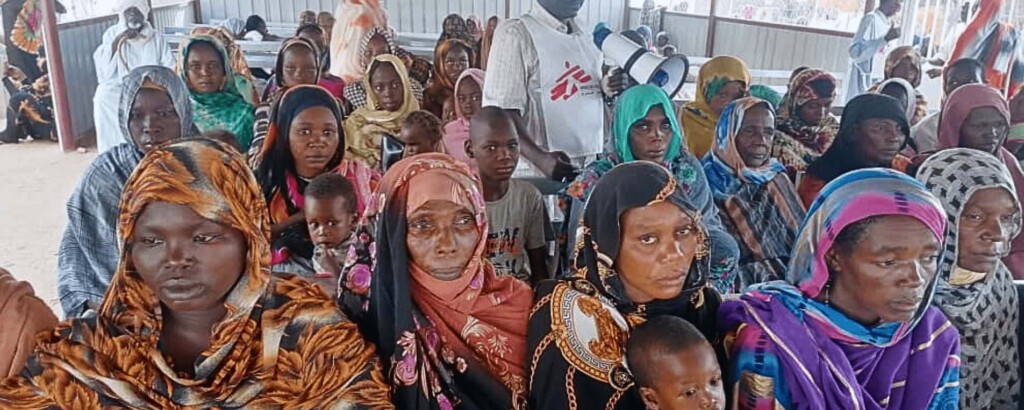
‘Acute security challenges’
The acute need is echoed by Prominent Sudan researcher and analyst Prof Eric Reeves. The latest monthly report, complied with Gaffar Mohammud Seneen as co-chairs of Team Zamzam, says that the humanitarian organisation is able to feed a significant number of families every month with local food purchases, even as Zamzam and nearby El Fasher remain out of reach for humanitarian workers and convoys.
‘Team Zamzam lives in a stifling siege, with floods, and mass displacement of a sort that Darfur has never experienced…’ – Prof Eric Reeves
“There is no longer a safe place in El Fasher or its surrounding; fear and terror spread across all neighbourhoods of the city without distinction. Homes that used to contain warm family memories have been turned into rubble, and the streets where children used to play and have fun have become arenas of destruction and death,” Reeves laments.
“Schools have closed their doors. The remaining hospitals are suffering from a severe shortage of medical supplies and the deliberate destruction of virtually all health facilities has made the treating of wounds an almost impossible task… Resources are very scarce and movement is deadly dangerous.”
‘Children who dream of a bright future find themselves today surrounded by the scenes of death, rotting human corpses, mass destruction, and constant bombardment…’ – Prof Eric Reeves
Poignantly, Reeves points out: “Children who dream of a bright future find themselves today surrounded by the scenes of death, rotting human corpses, mass destruction, and constant bombardment. The dreams of the people of El Fasher to live in peace have grown cold; the people are still silent and resilient, but they wonder how long they must be silent.”
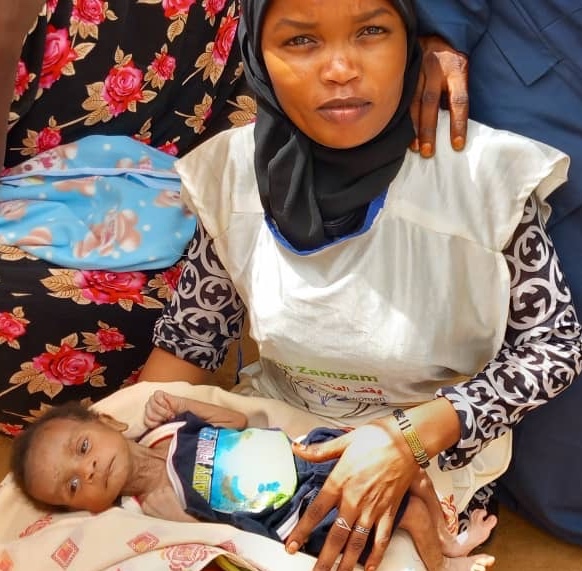
UNICEF
In an interview with Radio Dabanga in September, Mira Nasser, the Sudan Communications and Media Director of the United Nations children’s Fund (UNICEF), lamented that “there are limits to what assistance can achieve without real peace and security”. She highlighted that developments such as the reopening of Sudan’s Adré border crossing with Chad present an opportunity to deliver aid, however, an immediate ceasefire is essential to enable humanitarian relief organisations reach those affected by the war.








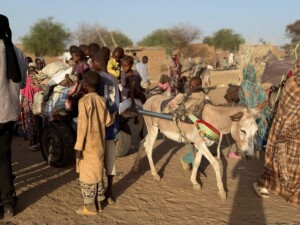
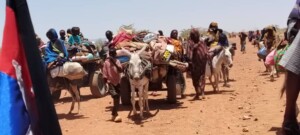

 and then
and then